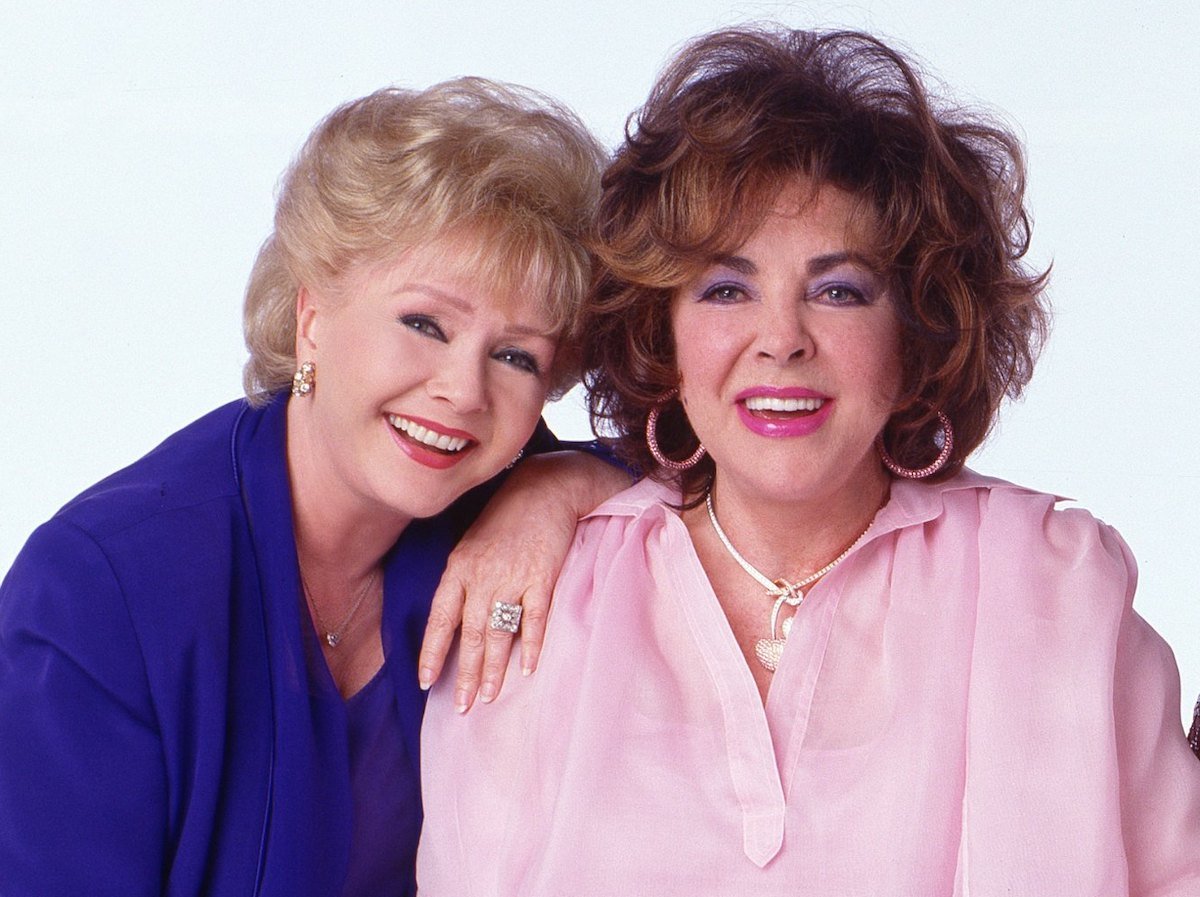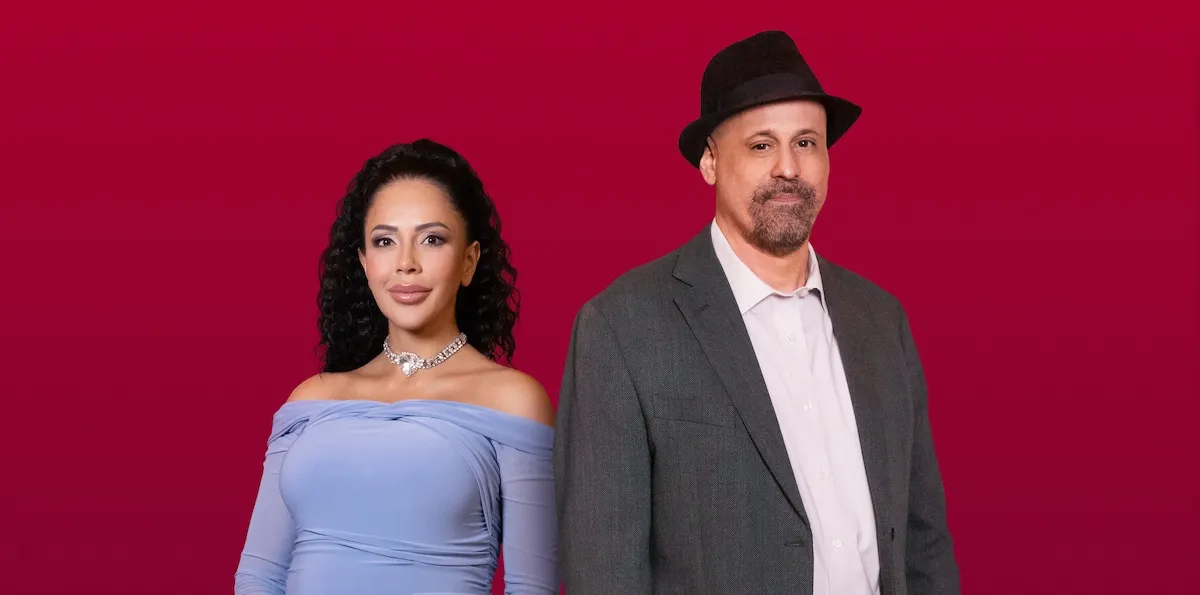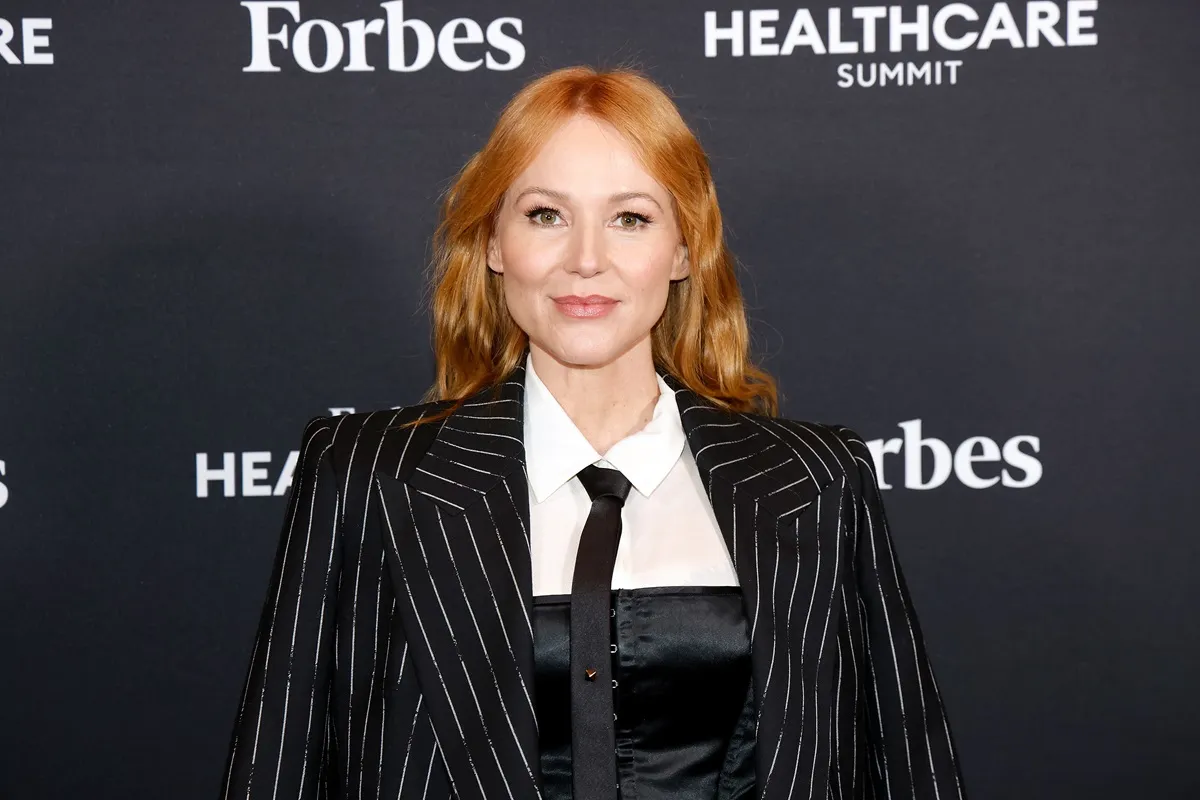Carrie Fisher Wrote a Movie for Debbie Reynolds and Elizabeth Taylor About the Eddie Fisher Affair
Carrie Fisher wasn’t shy about her life. In fact, she was rather adamant about sharing it. The late Star Wars icon revealed her affair with Harrison Ford in the memoir she published just one month before her death in 2016, but that wasn’t the first time she had written about her life.
Fisher was born into a famous family. Her parents were actress Debbie Reynolds and singer Eddie Fisher, and at one point (and rather salaciously), her step-mother was none other than Elizabeth Taylor. Taylor and Reynolds had been best friends in high school before Taylor’s affair with Fisher made headlines, and decades later, after the actresses had reconciled, Carrie wrote a movie for her mother and step-mother to star in that was loosely based on the whole Eddie Fisher drama.

Carrie Fisher’s ‘These Old Broads’ starred Debbie Reynolds and Elizabeth Taylor
Fisher married Taylor in 1959, the same exact day his divorce from Reynolds was granted after four years of marriage. By 1966, Reynolds and Taylor were both remarried and had a run-in on the trans-Atlantic cruise ship the Queen Elizabeth.
On the ship, they snuck notes to each other planning a dinner, and then they got really drunk and made up. That’s truly a feat, considering the fact that Todd Fisher (Carrie’s younger brother) called the whole love triangle an “insane tabloid feeding frenzy” in his 2018 memoir.
The women were friends again from that point on, and in 2000, they starred in a made-for-TV movie called These Old Broads that was written by Carrie. It also starred Shirley McClain and Joan Collins, two other iconic actresses.
While the cast was enough to write home about, the scenes between Taylor and Reynolds are absolutely bonkers to watch in hindsight, as Carrie wrote clear parallels between her mother and former step-mother’s characters and their own real-life drama.

‘These Old Broads’ shows Elizabeth Taylor apologizing for stealing Debbie Reynolds’ man
“This isn’t about the costume,” Taylor says to Reynolds in one scene. “It’s about Freddy, isn’t it? Because if it is, it all happened so long ago, and we were so young.”
A man named Freddy that Taylor stole from Reynolds. Sounds a tad familiar, does it not?
“Let’s just drop it, OK?” the Halloweentown alum replied. “I forgave you years ago, so let’s move on.” Years ago, as in 1966, perhaps?
“And besides, everyone knows you’re a very sick woman,” Reynolds continues, throwing some serious shade. “A card-carrying nymphomaniac.”
“Nympho?!” Taylor cries. “You think any woman who had a normal, healthy sex life was a nymphomaniac!”
As Reynolds shoots back, “Well, I enjoy sex, but you, if a man was on fire, you’d stamp him out and screw him!” And then, a serious read comes from Taylor.
“See, I think of sex as a language, and I’m fluent in it,” she says. “You, well, for you, it’s a second language.”
But here comes the kicker. Taylor, in a moment that feels more real than it feels acted, says to Reynolds, “I did you a favor by taking away Freddy.”
Elizabeth Taylor apologized to Debbie Reynolds for her affair with Eddie Fisher on set of ‘These Old Broads’
The obvious subtext of the scene wasn’t the only time Reynolds and Taylor’s mutual ex came up during the filming of that movie. According to Todd, the late Cleopatra star cried while apologizing to Reynolds on the These Old Broads set.
“I’m sorry for what I did to you with Eddie,” Taylor is quoted as saying in My Girls: A Lifetime With Carrie and Debbie.
Reynolds, just like in the movie, had forgiven her friend long ago, Todd said she was moved by Taylor’s unprompted apology.
“It caught Mom off guard that Elizabeth was still so emotional about it,” he wrote in the memoir.
Suffice it to say that bygones really can be bygones. And they can also co-star in melodramatic camp comedies based on their own drama. You see that? That’s growth.


